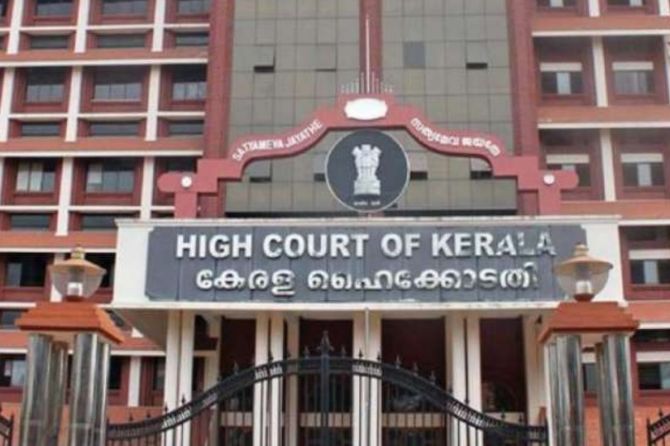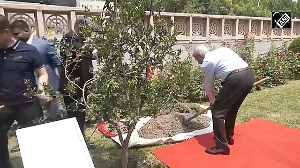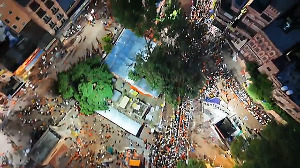The Kerala high court on Monday said that the phone of a journalist cannot be seized by the police in connection with a case, without following the procedure laid down by law.

Justice PV Kunhikrishnan said that journalists are "part of the fourth estate" and if their mobile phone is necessary in connection with a case, then the provisions of the Criminal Procedure Code have to be followed before seizing it.
The court's order came on a plea moved by G Vishakan, a journalist of a Malayalam daily, alleging harassment by the police in connection with a case under the SC/ST (Prevention of Atrocities) Act against Shajan Skaria, editor of YouTube 'news' channel Marunadan Malayali.
Skaria, meanwhile, was granted interim protection from arrest in the case by the Supreme Court earlier in the day.
He was denied this relief by a special court in Kerala and the high court in Kochi.
The journalist, in the plea moved through advocate Jayasurya Bharathan, claimed that the police officials raided his home on July 3, conducted a search and asked about Skaria.
After that they called him to the police station where they seized his phone.
Vishakan has urged the court to issue an interim direction for return of his mobile as it was the sole source of his livelihood.
Justice Kunhikrishnan, after hearing both sides, said, "I am of the considered opinion that the mobile phone of the journalist shall not be seized by the police authorities in violation of the provisions of Code of Criminal Procedure.
"If the mobile phone is necessary in connection with a criminal case, there are procedures to be followed before seizing those items. Journalists are part of the fourth estate."
The court directed the police to file a statement indicating the circumstances under which the mobile phone of the petitioner-journalist was seized and listed the matter for further hearing on July 21.
The court further said that a journalist may be getting all kinds of information on their mobile phones and simply because they got some information about a crime does not permit seizure of the device without following the procedure laid down in the CrPC.
"There is an allegation in this case to the effect that the petitioner and even his family members were harassed. That can't be allowed," it said.
The petitioner has contended that the search at his home was unauthorised as no prior notice was served upon him, nor did the officers have a warrant.
Vishakan also claimed that he was not an accused in the case under the SC/ST Act and there was no incriminating evidence against him. He said that his only connection with the accused Skaria was the occasional sharing of news for remuneration.
The scribe, in his plea, has urged the court to direct the police not to harass him nor search his home or summon him to the police station. He has also sought action against the police for the allegedly illegal search conducted at his home.
The police took action against the YouTube 'news' channel as part of an investigation to trace its editor Skaria, following a case filed against him under the SC/ST (Prevention of Atrocities) Act by an MLA belonging to the ruling Left front.
The police intensified the action against the online channel days after the Kerala High Court dismissed Skaria's anticipatory bail plea in the complaint lodged with the Elamakkara police by Left MLA PV Sreenijin, who represents Kunnathunad constituency.
After MLA Sreenijin lodged a complaint with the police alleging that the online 'media' channel deliberately defamed him by spreading fake news, Skaria moved the special court seeking protection from arrest.
The special court dismissed the plea, saying that the publication of the video containing derisive and derogatory comments is sufficient to attract the alleged offences, and hence the bar on anticipatory bail under Section 18 of the SC/ST (Prevention of Atrocities) Act would apply.
Skaria then moved the high court, but it upheld the sessions court order, making scathing observations about the purported online news channel's style of functioning.











